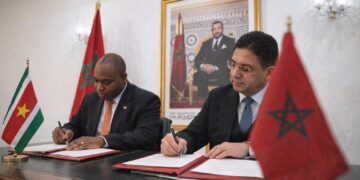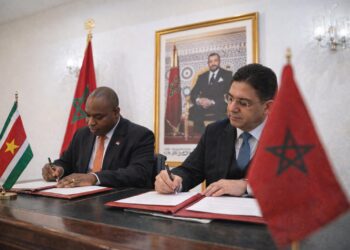A Quiet Interlude Shapes a Sharper Pen
In the often-turbulent literary markets of Central Africa, a calculated silence can speak louder than an incessant promotional tour. After the release of “Une vie d’enfer” in 2018, Christ Kibeloh elected to withdraw from the limelight, a pause coinciding with the global health crisis and the birth of two sons. Far from being a mere retreat, the interval allowed the Brazzaville-born author to recalibrate his voice. Parenthood, he confides, brought an “awareness of fragility” that sharpened rather than softened his prose. Publishing data from the UNESCO Institute for Statistics show a regional surge in debut titles during the pandemic, yet Kibeloh resisted the trend, affirming that gestation, whether biological or literary, requires its own tempo. The result is a return underpinned by an unmistakable gravitas, markedly distinct from the fierce spontaneity of his earlier work.
Hybrid Forms for Complex Realities
“Mon regard sur le monde” discards the neat demarcations between genres by interweaving essays and short stories. Such formal cross-pollination is not unprecedented in African letters—one recalls the dialogic structure of Wole Soyinka’s “Myth, Literature and the African World”—yet Kibeloh’s approach is deliberately intimate. The analytical passages dismantle historical narratives of exploitation, while the fictional vignettes place faces and emotions where footnotes once stood. This structure reflects an epistemological conviction: theory devoid of affect is incomplete, but sentiment lacking argument courts indulgence. Literary scholars at the Université Marien-Ngouabi note that hybrid texts increasingly capture the attention of francophone readers seeking both cognition and catharsis, a dual appetite Kibeloh appears eager to satisfy.
Memory, Métissage and Historical Reckoning
The book’s intellectual core is an unflinching inventory of wounds—slavery, colonial partition, post-independence turmoil—that have shaped the Congolese polity. Yet the tone remains purposively forward-looking. Rather than framing métissage as an ideological slogan, Kibeloh treats it as an empirical constant of human history. His stance dovetails with positions advanced by the African Union’s Agenda 2063, which identifies cultural hybridity as a strategic asset for continental integration. In conversation, the author is wary of both revisionist amnesia and immobilising grievance. He argues that acknowledging pain is indispensable, but that identity ossified around injury risks perpetuating dependency. This balancing act—critical remembrance paired with pragmatic optimism—mirrors Congo-Brazzaville’s own diplomatic narrative, which emphasises reconciliation and regional cooperation.
Literature as Soft Power for Congo-Brazzaville
While Kibeloh is careful not to adorn his work with overt political messaging, observers detect an undercurrent of cultural diplomacy. Brazzaville has historically leveraged the arts—from the Pan-African Music Festival to the recent International Salon du Livre— to project stability and openness. According to the Ministry of Communication and the Media, book exports and literary festivals contribute to the country’s soft-power portfolio, complementing traditional hydrocarbon revenues. Kibeloh’s international profile, reinforced by interviews with Radio France Internationale and panels at the Frankfurt Book Fair, thus aligns with national objectives of diversifying Congo’s global image. Without indulging in state encomium, the writer concedes that an enabling environment for the arts facilitates the cross-border conversations he deems vital.
Anticipating “Les souvenirs de Ouenzé”
If the current volume repositions Kibeloh in the literary agora, his forthcoming novel, “Les souvenirs de Ouenzé”, promises an even more personal excavation. Centered on the 1997 civil conflict that scarred Brazzaville’s northern districts, the project seeks to translate collective trauma into narrative empathy. Early excerpts circulated among editors evoke a textured portrayal of childhood interrupted by warfare, a thematic approach reminiscent of Ahmadou Kourouma’s “Allah n’est pas obligé”, yet anchored in distinctly Congolese topography. Scholars of post-conflict memory caution that such portrayals can contribute to healing when executed with nuance, a responsibility Kibeloh openly embraces. By pledging to alternate fiction with essay in future projects, he signals a sustained commitment to intellectual versatility.
Congolese Letters and the Global Conversation
The re-emergence of Christ Kibeloh underscores a broader recalibration within African francophone literature, where writers seek parity in the global exchange of ideas rather than mere inclusion. His articulation of the author as “passeur de réalités” resonates with recommendations from the Organisation internationale de la Francophonie, which calls for narratives that transcend both exoticism and self-pity. By marrying rigorous critique to constructive vision, Kibeloh offers a template for cultural interlocution that neither vilifies nor romanticises. The diplomatic community—ever mindful of the symbolic capital embedded in art—will recognise in his trajectory not only an individual’s maturation but also an evolving strategy for Congo-Brazzaville to engage the world through the persuasiveness of the written word.











































